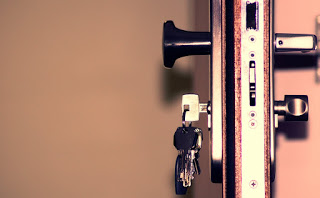You've heard the stories, "he quoted me $17 over the phone, and when the job was complete, I was charged $150." This is the works of a locksmith scammer and is a more common occurrence than you'd think.
Locksmith scammers dominate the top listings on Google. They advertise a local address, the lowest price in the area, and will even include a website & pictures; all making it look like they are a legitimate locksmith business.
They take advantage of people in emergencies and give a bad name to locksmiths everywhere. Don't fall for it. You can avoid becoming a victim to this scam.
How to Avoid Hiring a Locksmith Scammer
When Googling for a Locksmith
- Ask for their full, legal business name. Be cautious of businesses with generic names like "Locksmith Service."
- Find the address of the business and look up the location to confirm it is their actual business.
- Search their reviews, you'll want to find someone with a good reputation.
- Is the price on their ad too good to be true? No locksmith could stay in business charging $10 for a service.
- Ask friends and family to see if they have a locksmith they recommend.
Fifteen states require locksmiths to be licensed. These states include: Alabama, California, Connecticut, Illinois, Louisiana, Maryland, Nebraska, New Jersey, Nevada, North Carolina, Oklahoma, Oregon, Tennessee, Texas and Virginia.
If you are in one of these states, make sure you get proof of their license before letting them work on your property.
When You Call
- Question any 800 number.
- Again, be skeptical of anyone who answers your call with a generic phrase like "locksmith."
- Ask for a price estimate for the job and make sure it covers all fees (labor, parts, travel time).
- Be wary of quotes that are "$10 and up." Ask how much more is the "and up."
- Ask them to bring a written copy of this estimate to the job.
- Ask if they have insurance to cover you in case they damage your property.
When The Locksmith Arrives
- If a locksmith is taking an outrageous amount of time to get to you, be suspicious. They probably weren't located as close as their Google Ad stated. A good locksmith will contact you if they are running hours behind.
- Look for a logo on their van/truck or check for some sort of company identification. Not all locksmiths, even reputable ones, will include signage on their van for security reasons. So this isn't a sure giveaway that they are or are not a scam.
- Be cautious of what they are wearing. If they are not wearing a uniform or do not have any identification of their company, they might not be legitimate.
- ID
- License or registration (if your state requires it)
- Proof of insurance
- Look at the written estimate and make sure it matches what was given over the phone. If it's suddenly more expensive, see why, or consider finding a different locksmith.
- Check your ID
- Confirm you are the owner of the property before beginning work
- May ask you to sign paperwork (make sure you READ before signing)
After the Service:
- Get the itemized invoice in writing that covers all the fees you are being charged
- If you had a good experience with the locksmith, save their number to use in the future.
- If it was a scammer, chances are you will never hear from them again. The company will tell you it was the technician who overcharged you, and the technician will tell you the company sets the prices, so there is nothing they can do for you.
What to Do if You Were Scammed
You can report a complaint to your state's Attorney General's Office for fraud.
Tips
We hope you find this guide helpful when searching for a locksmith. Let us know in the comments below if you have any tips or questions on hiring a locksmith.


